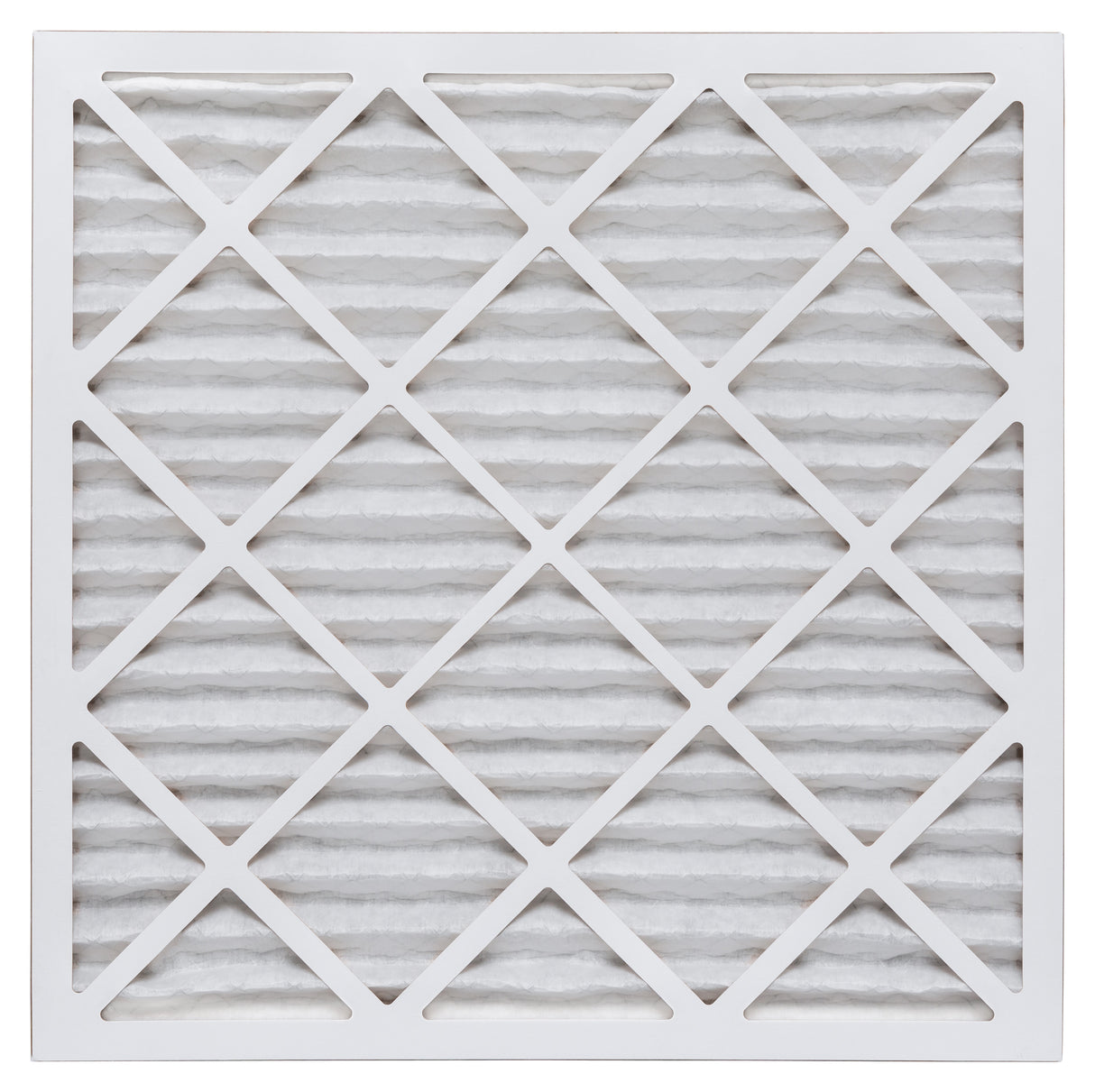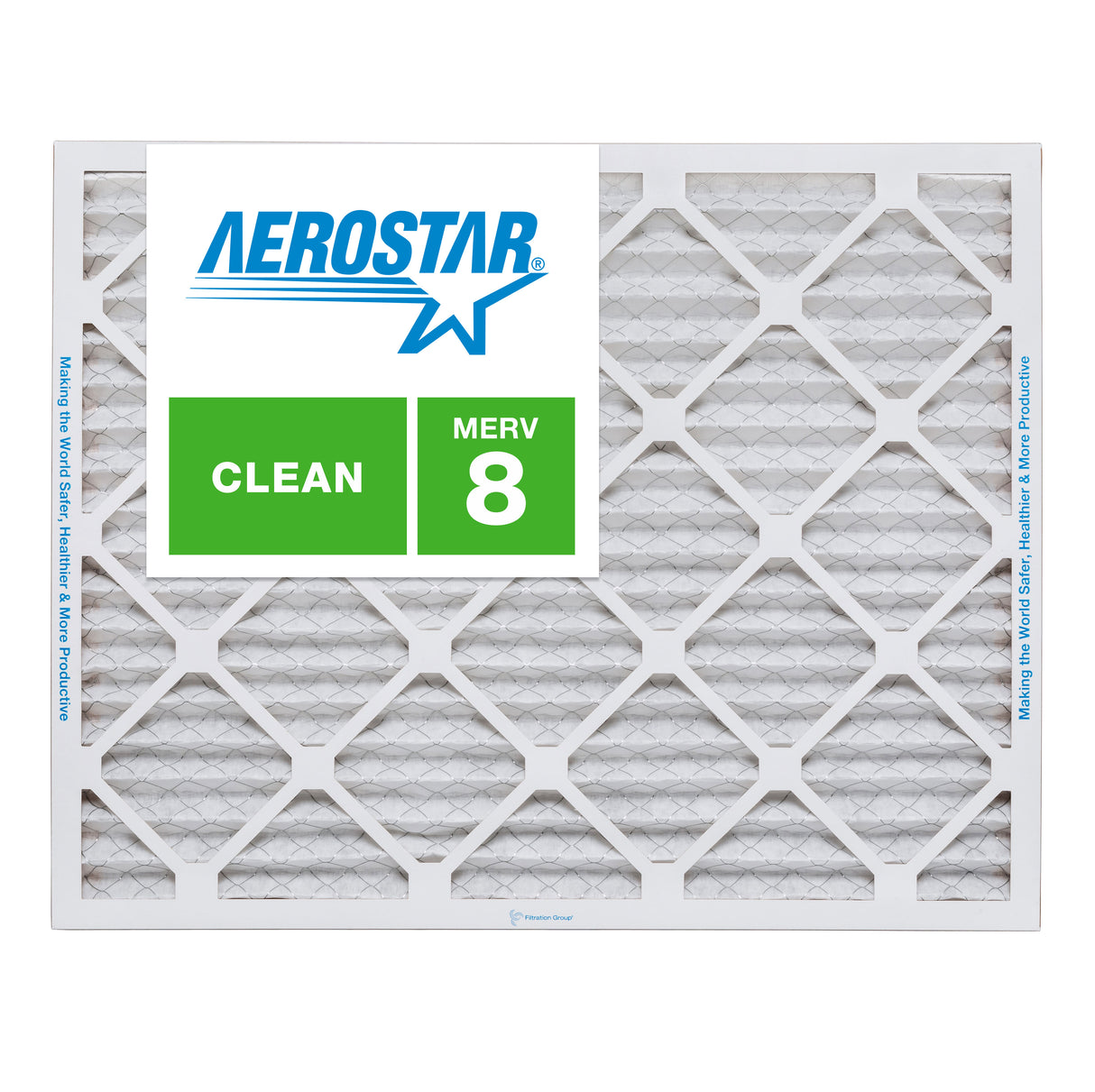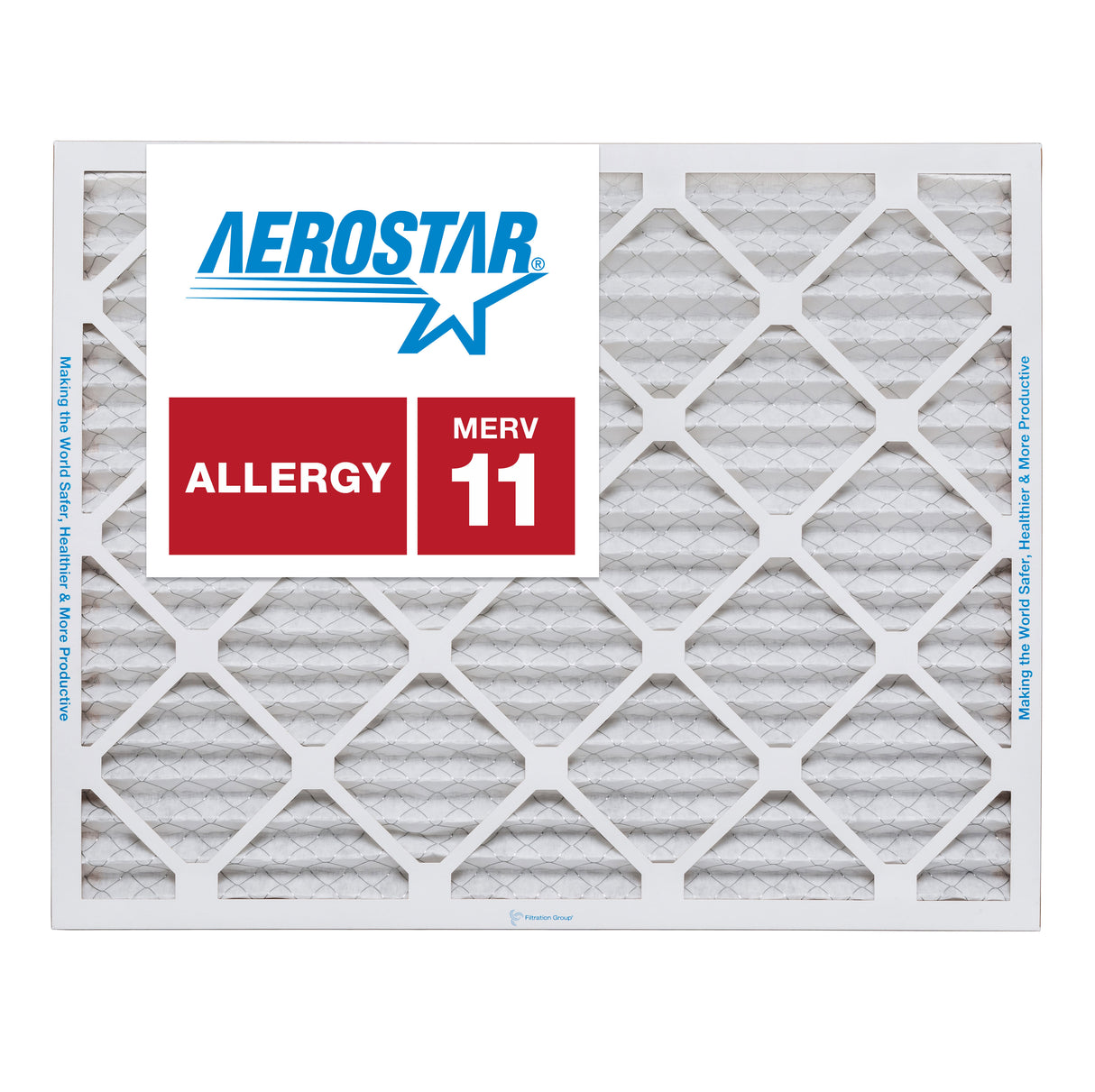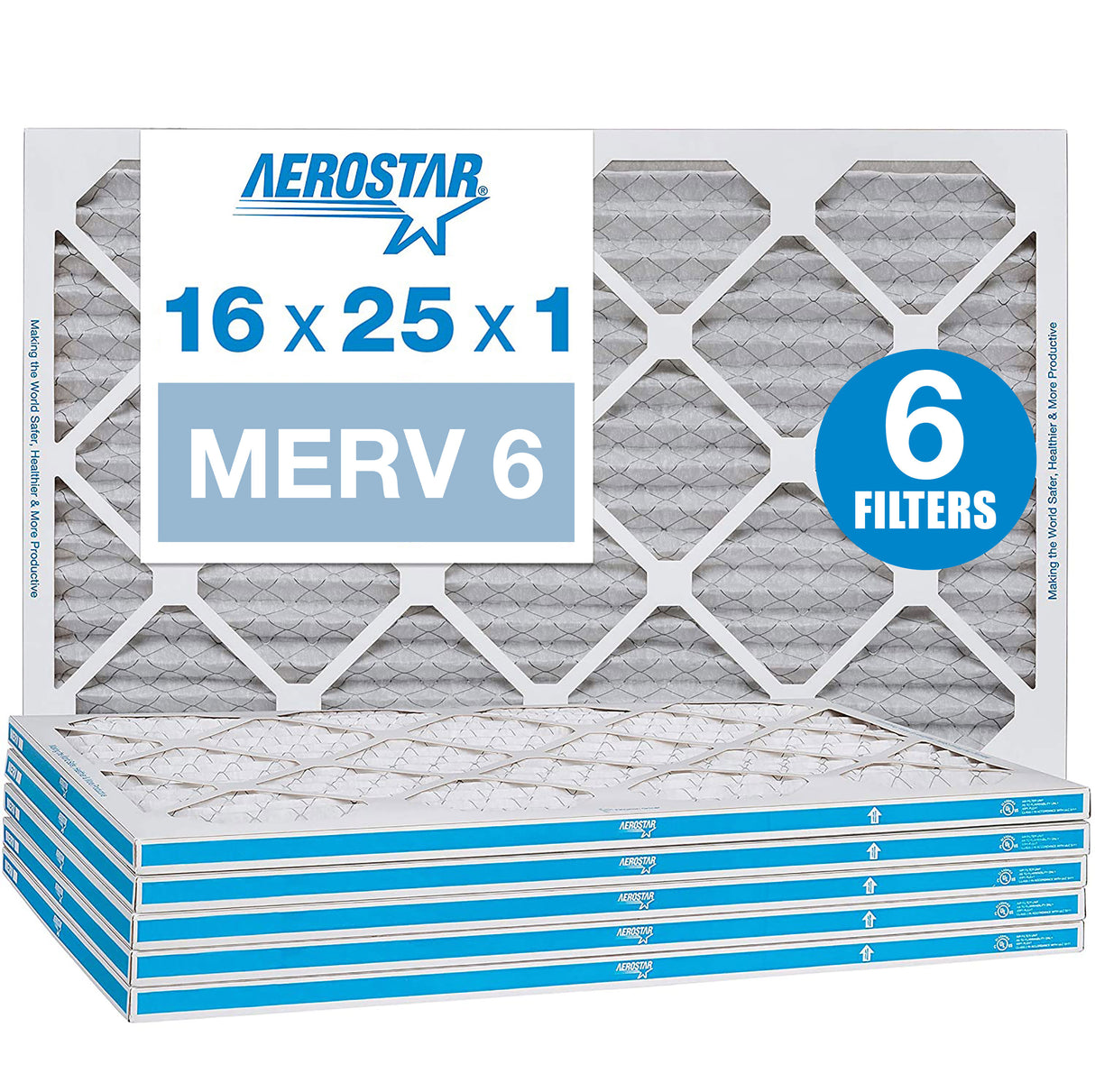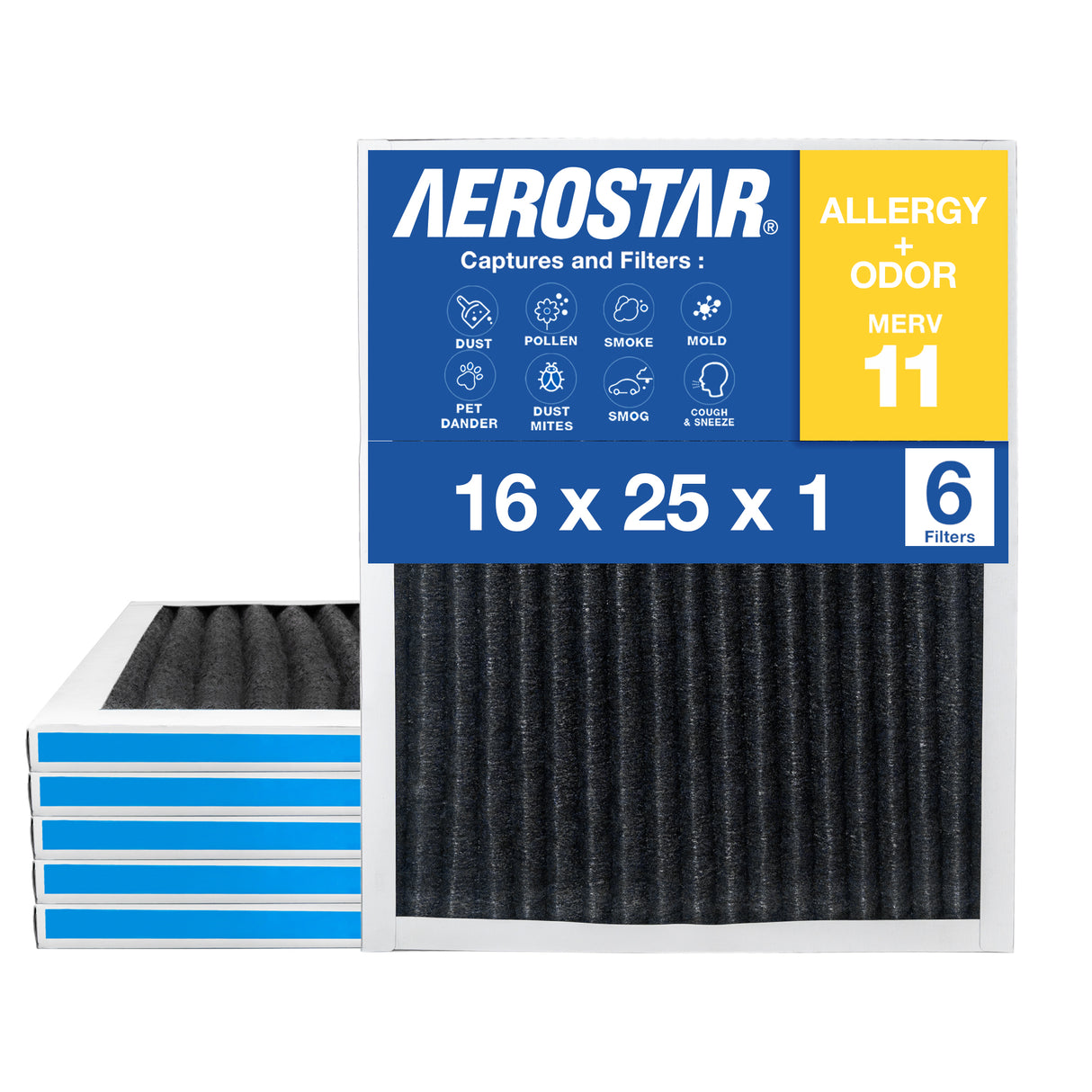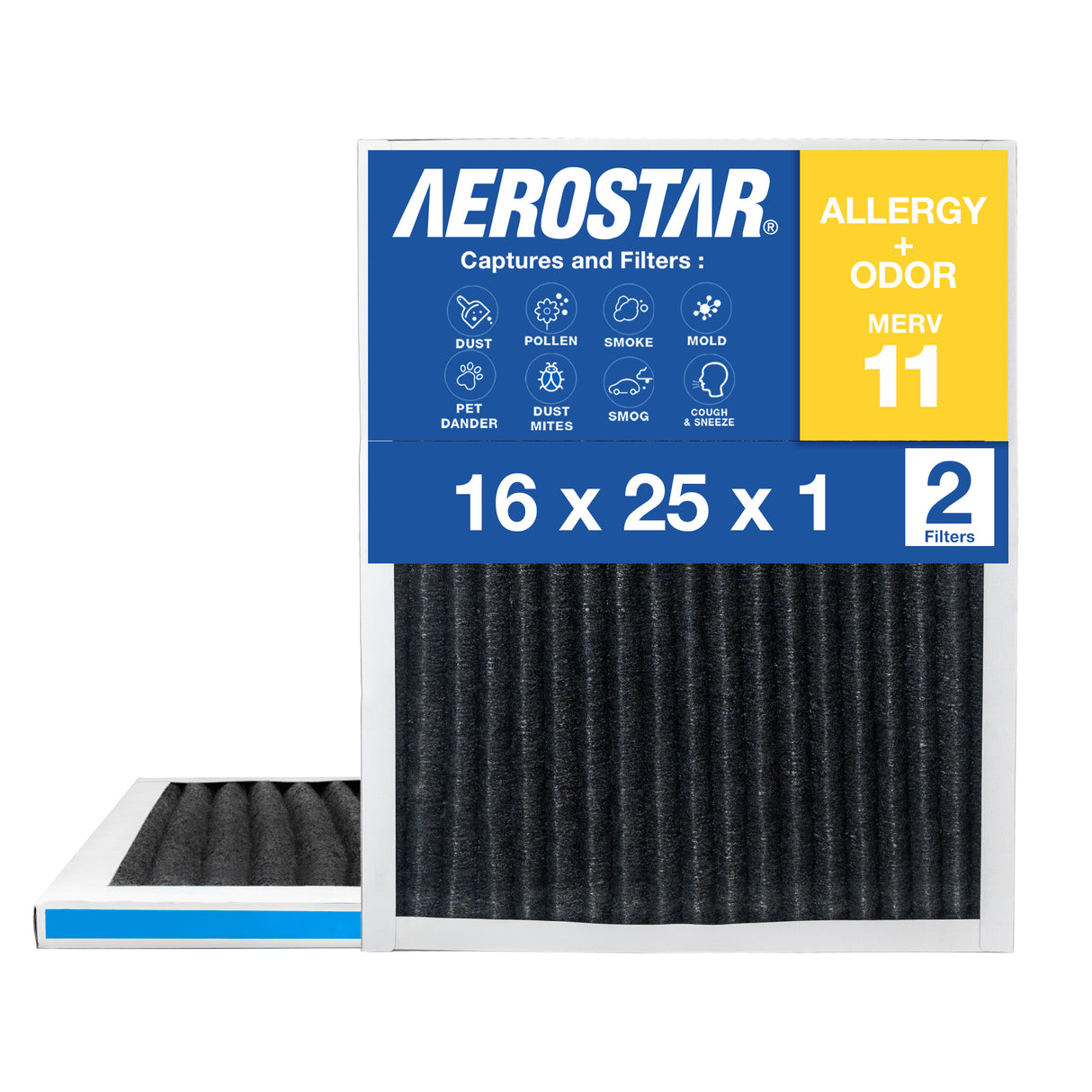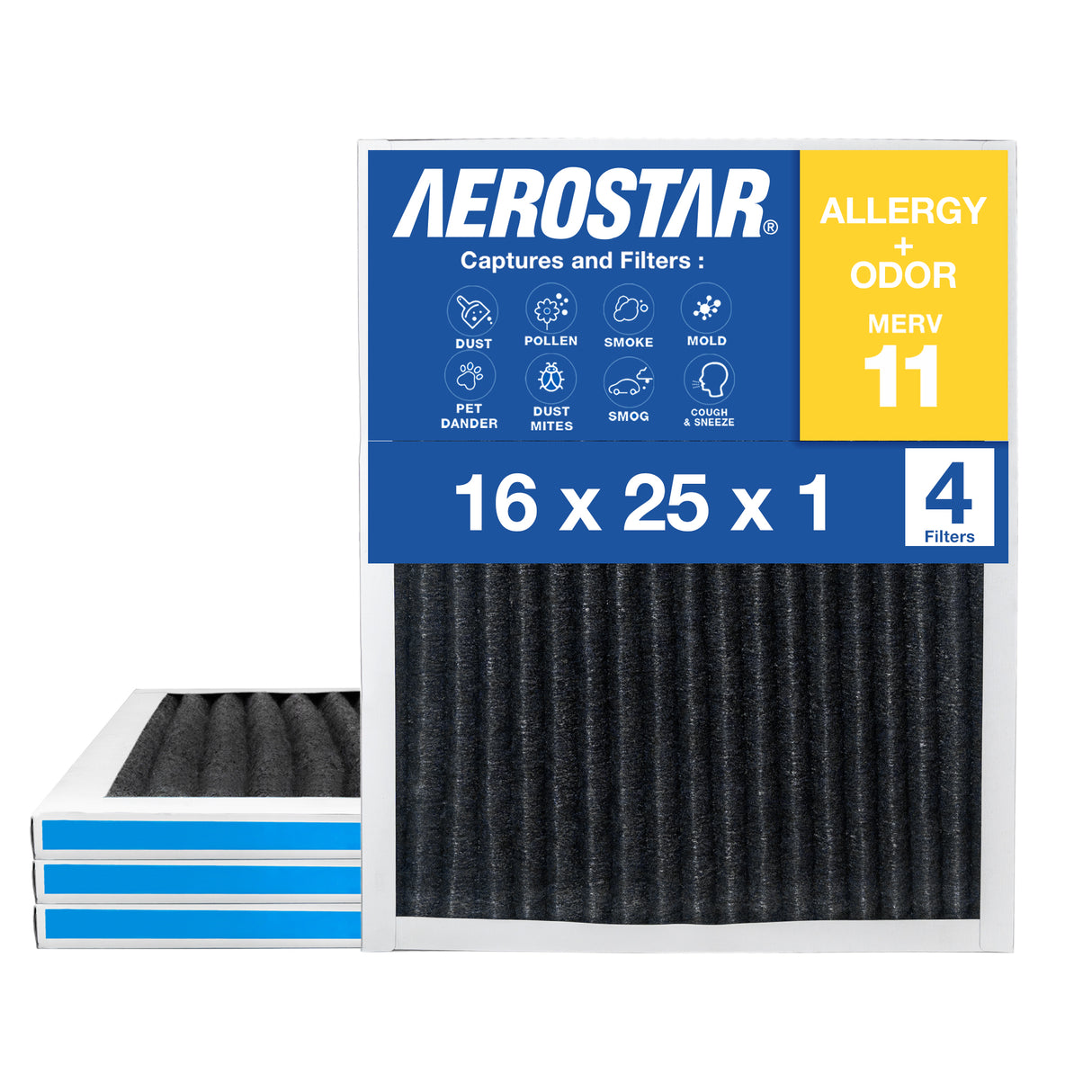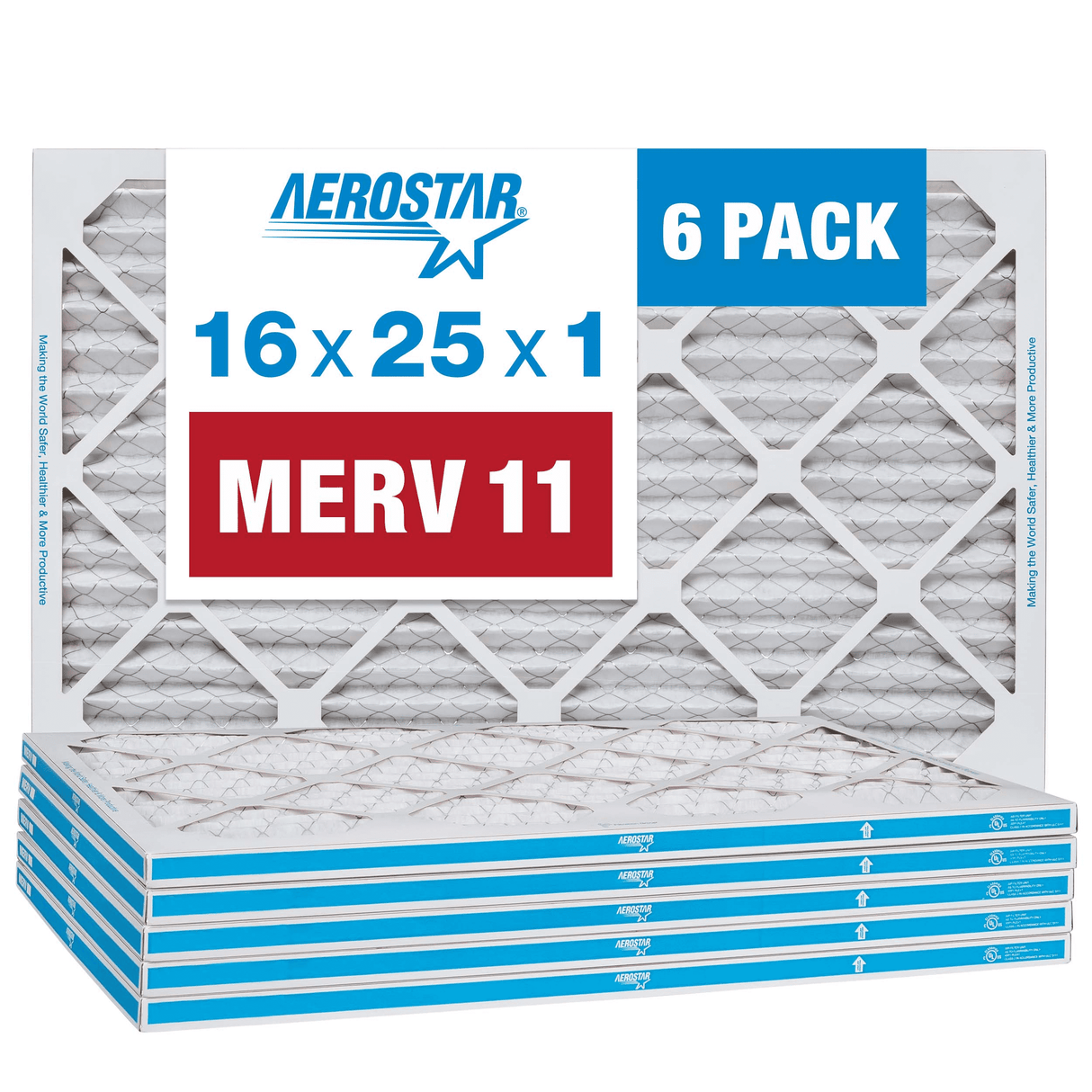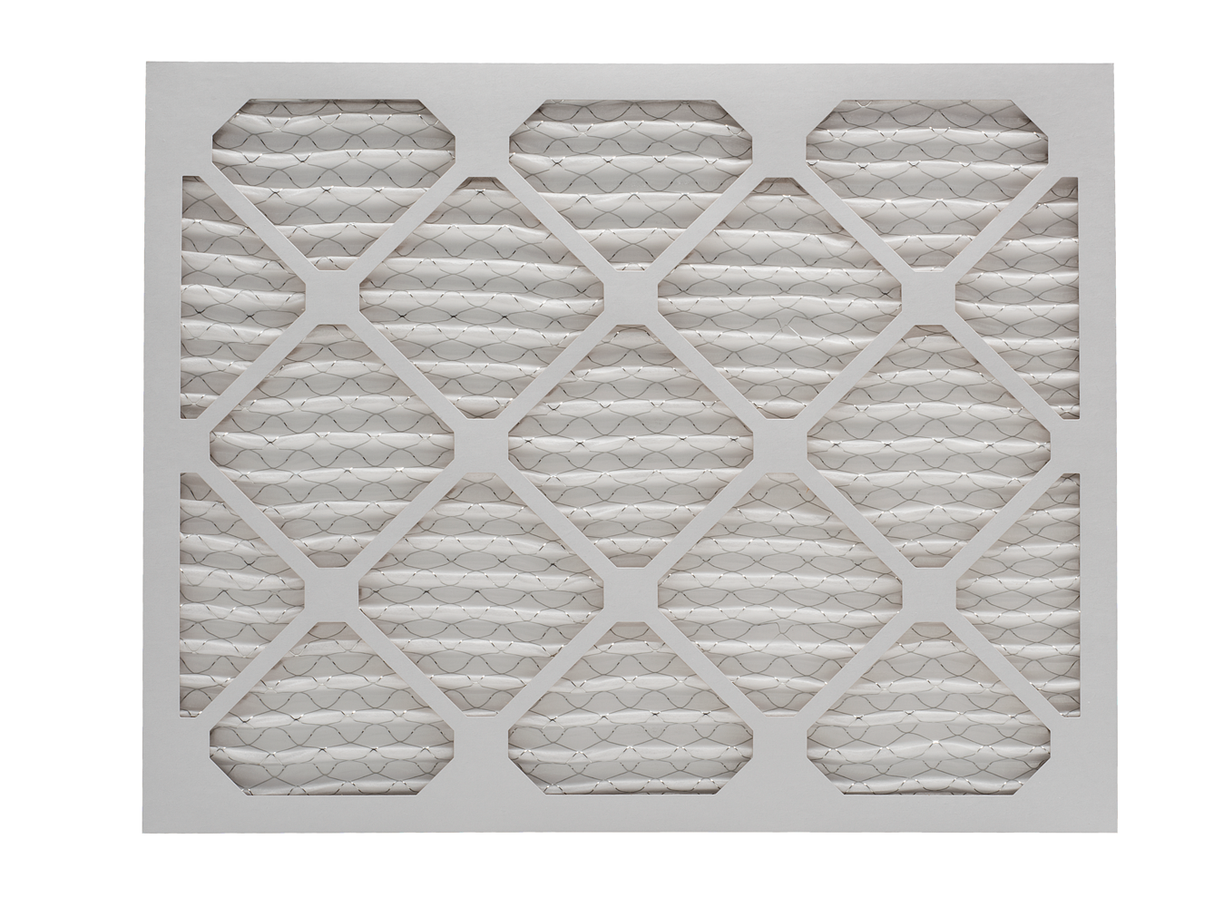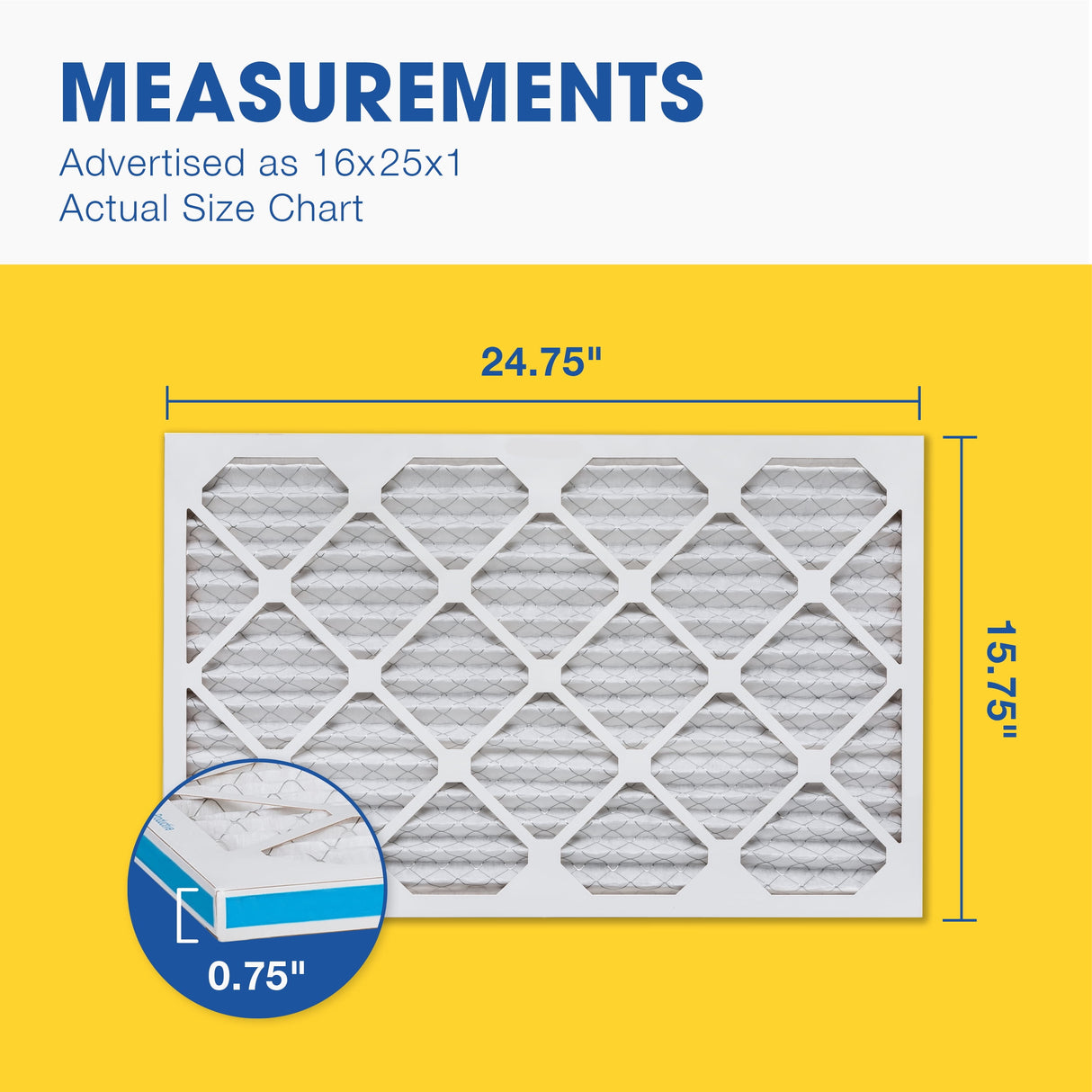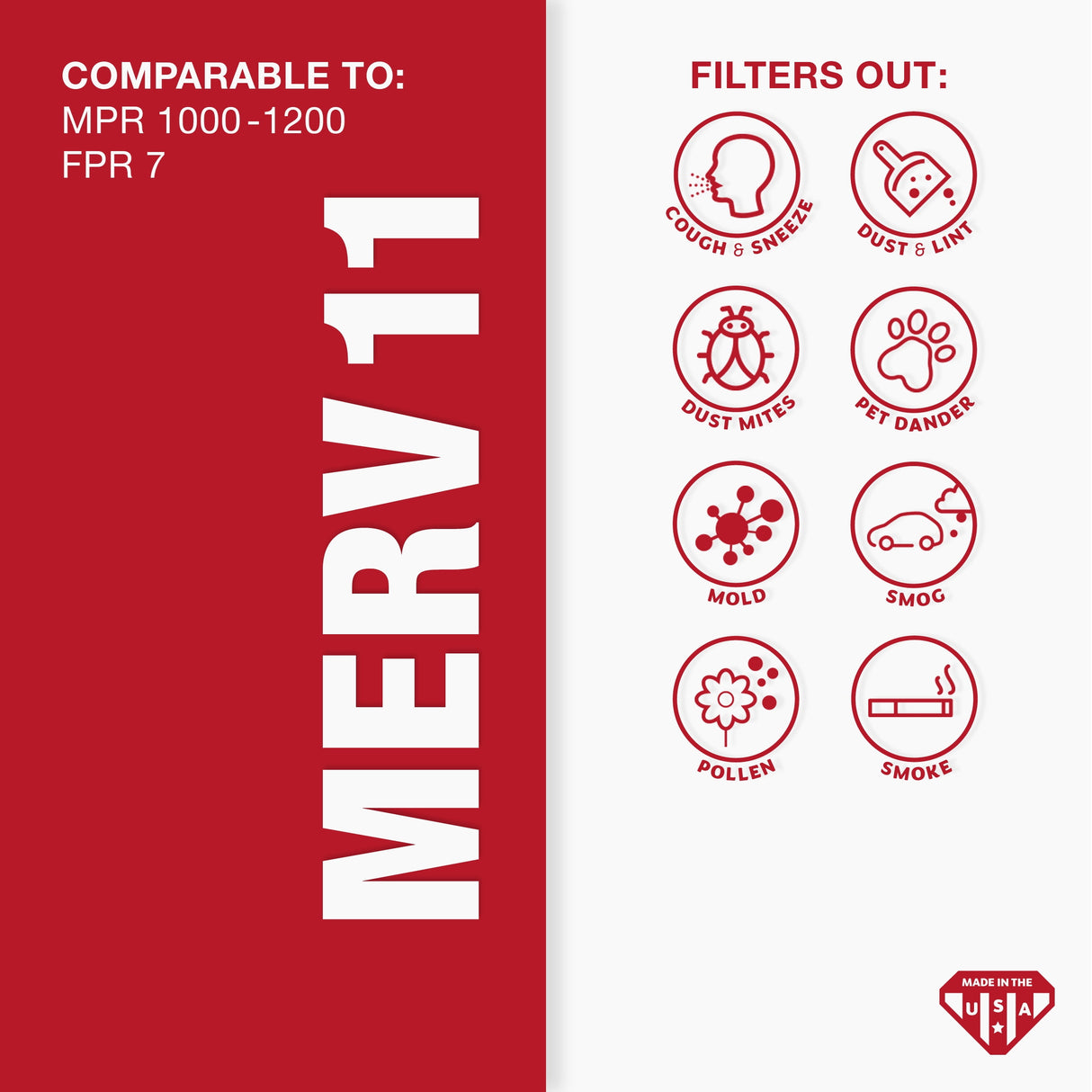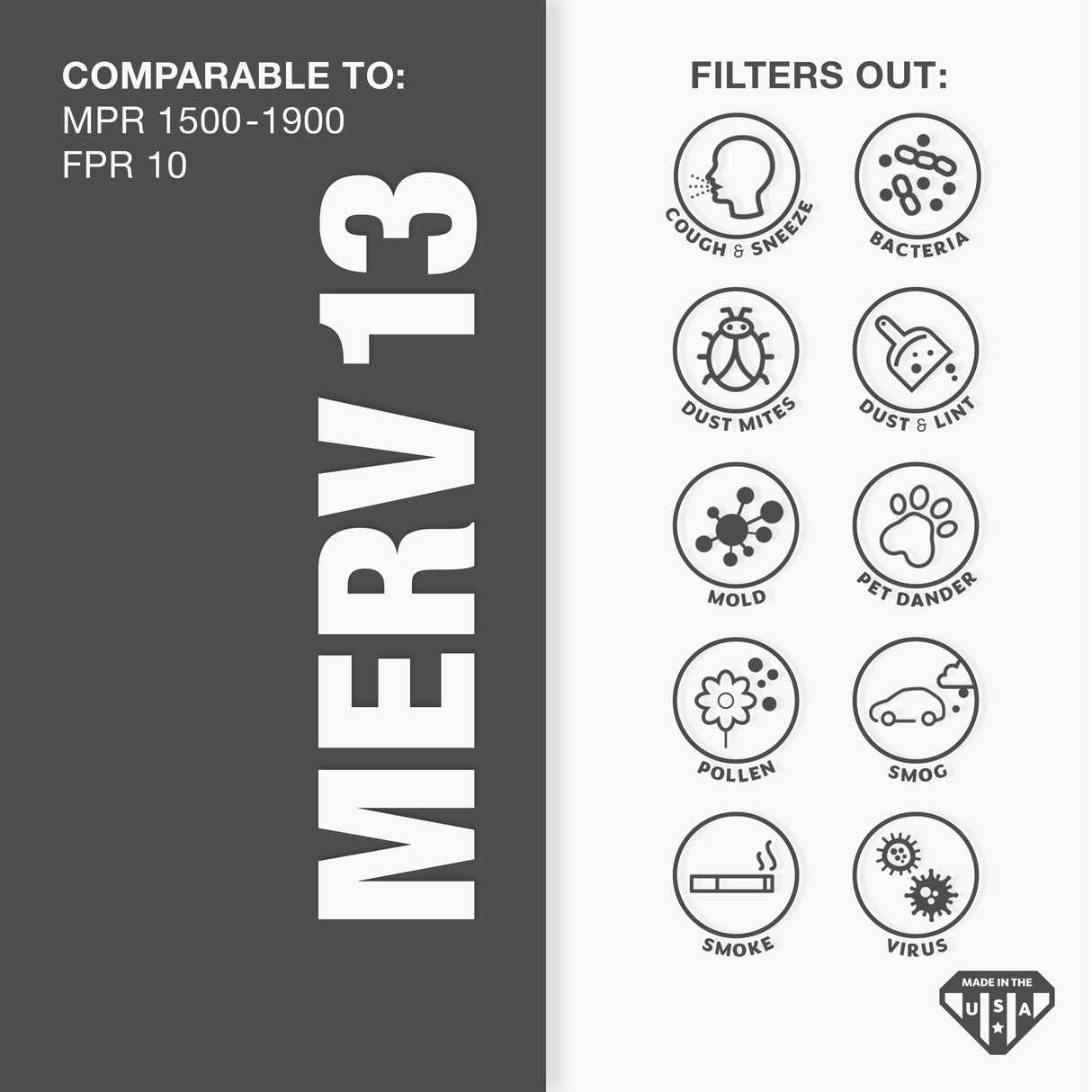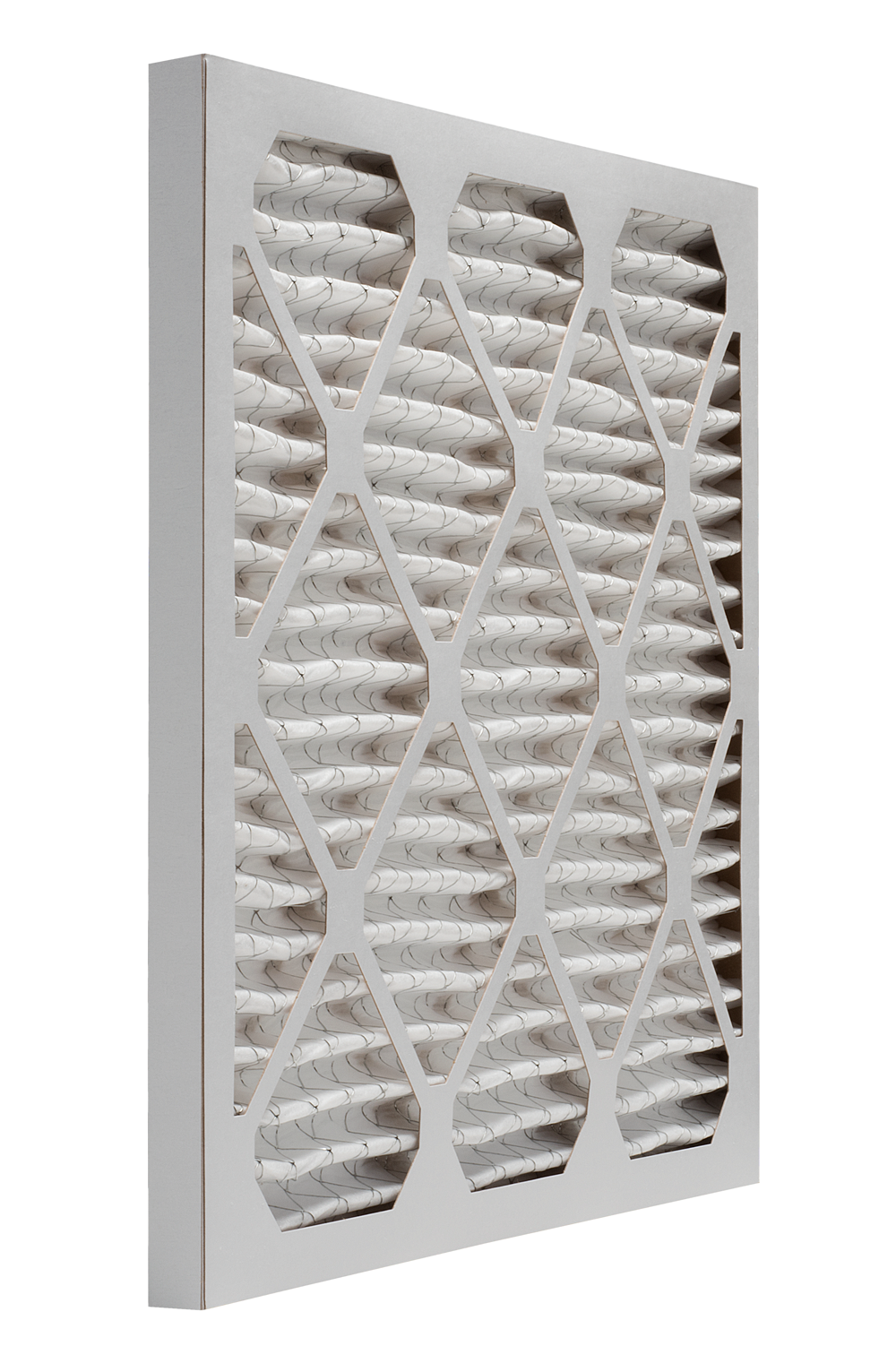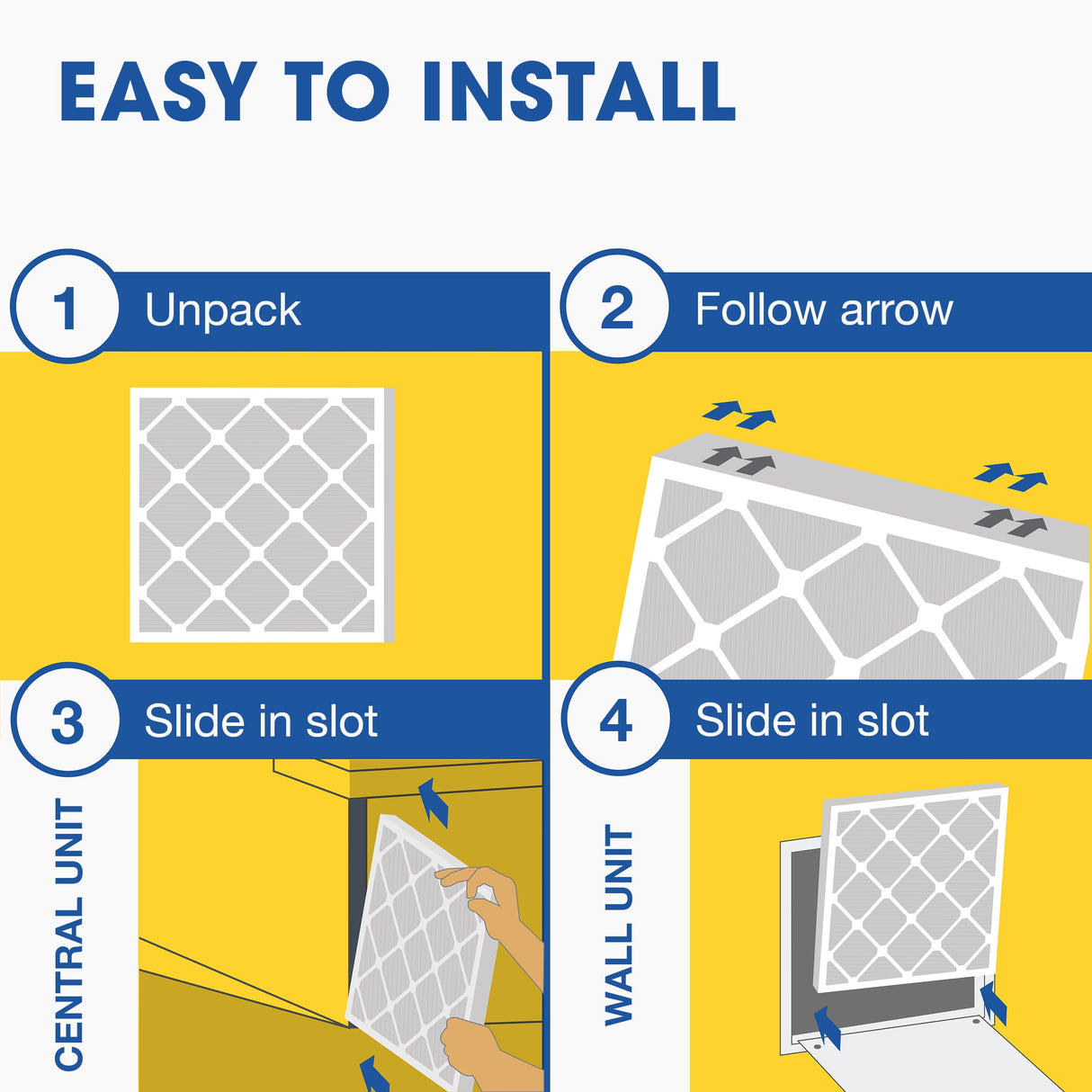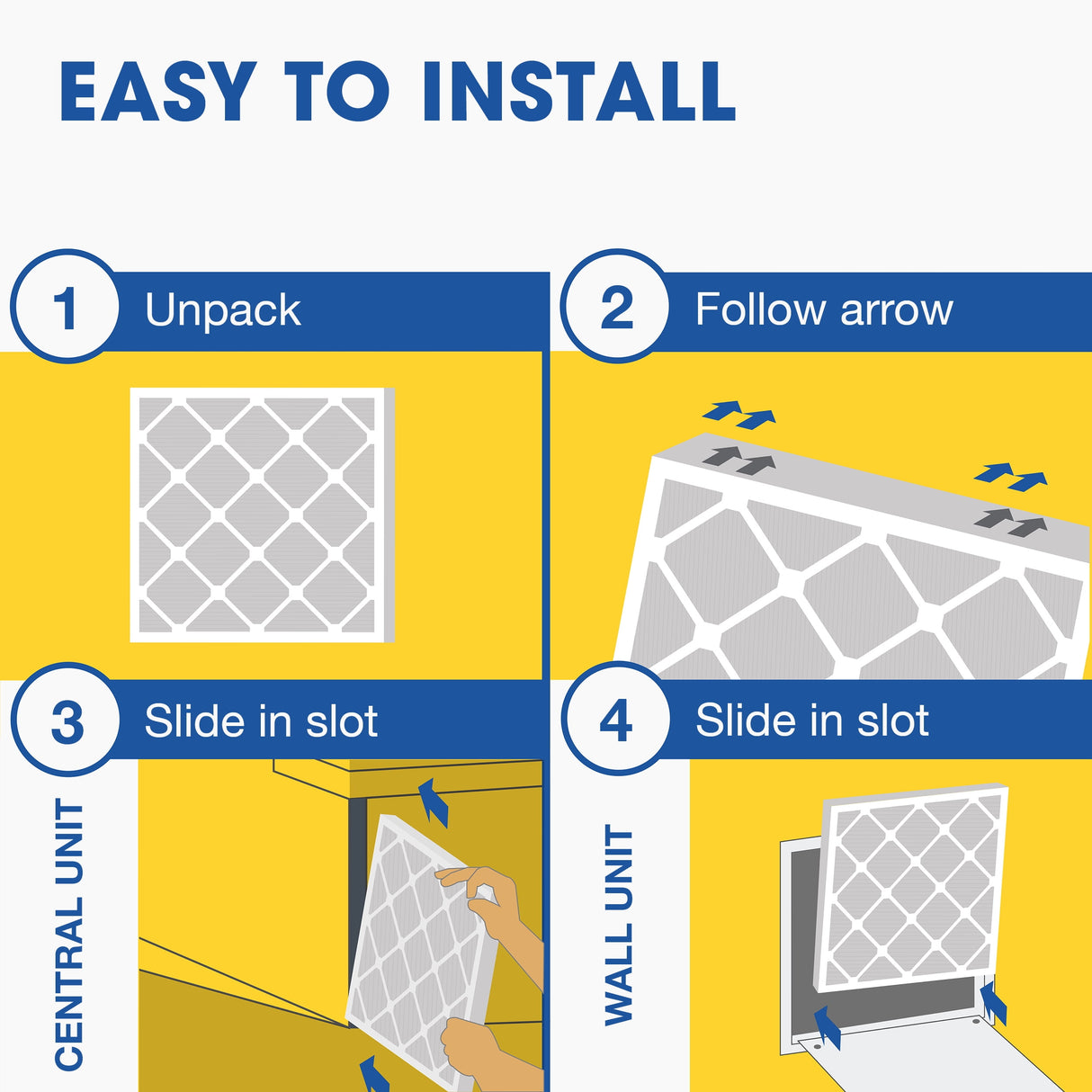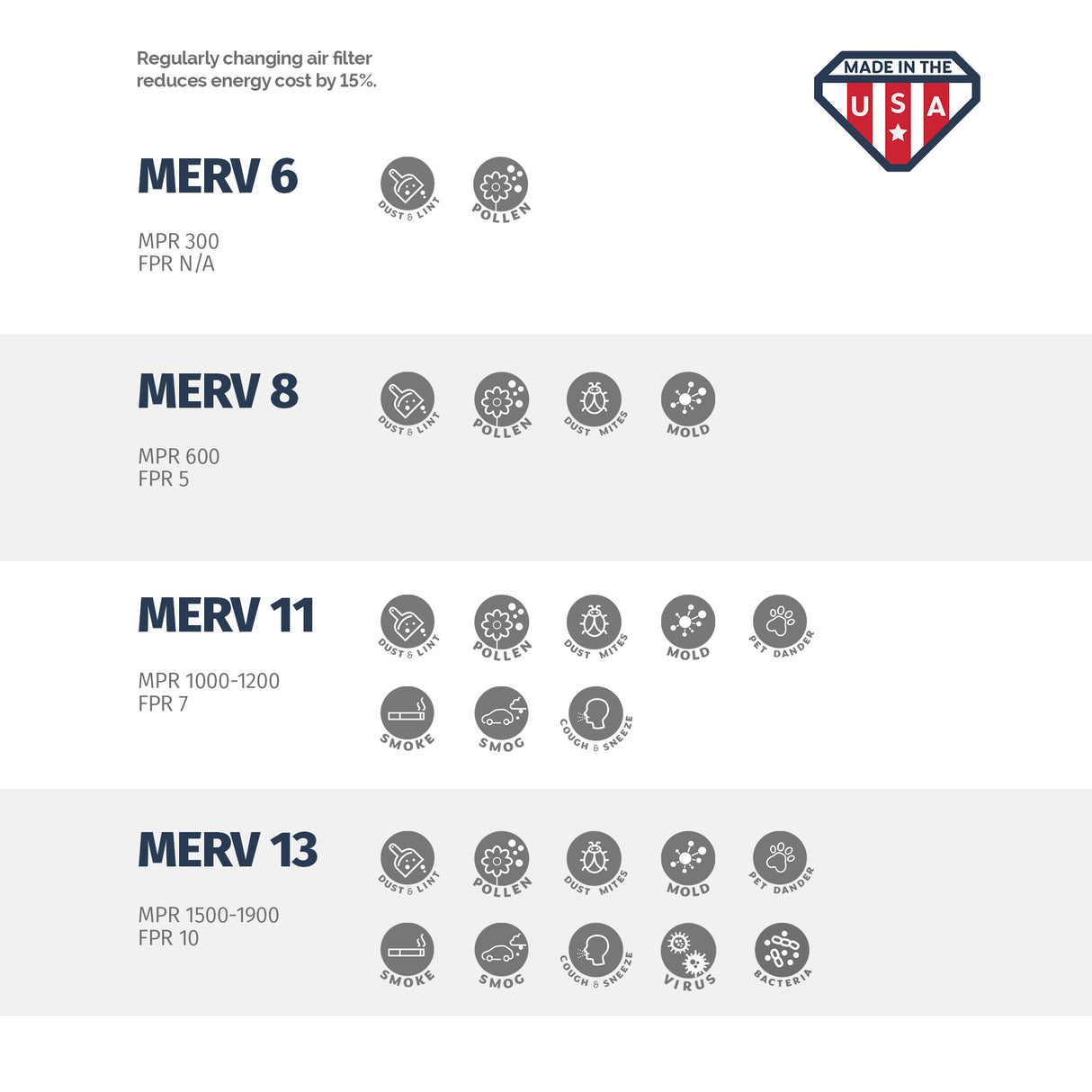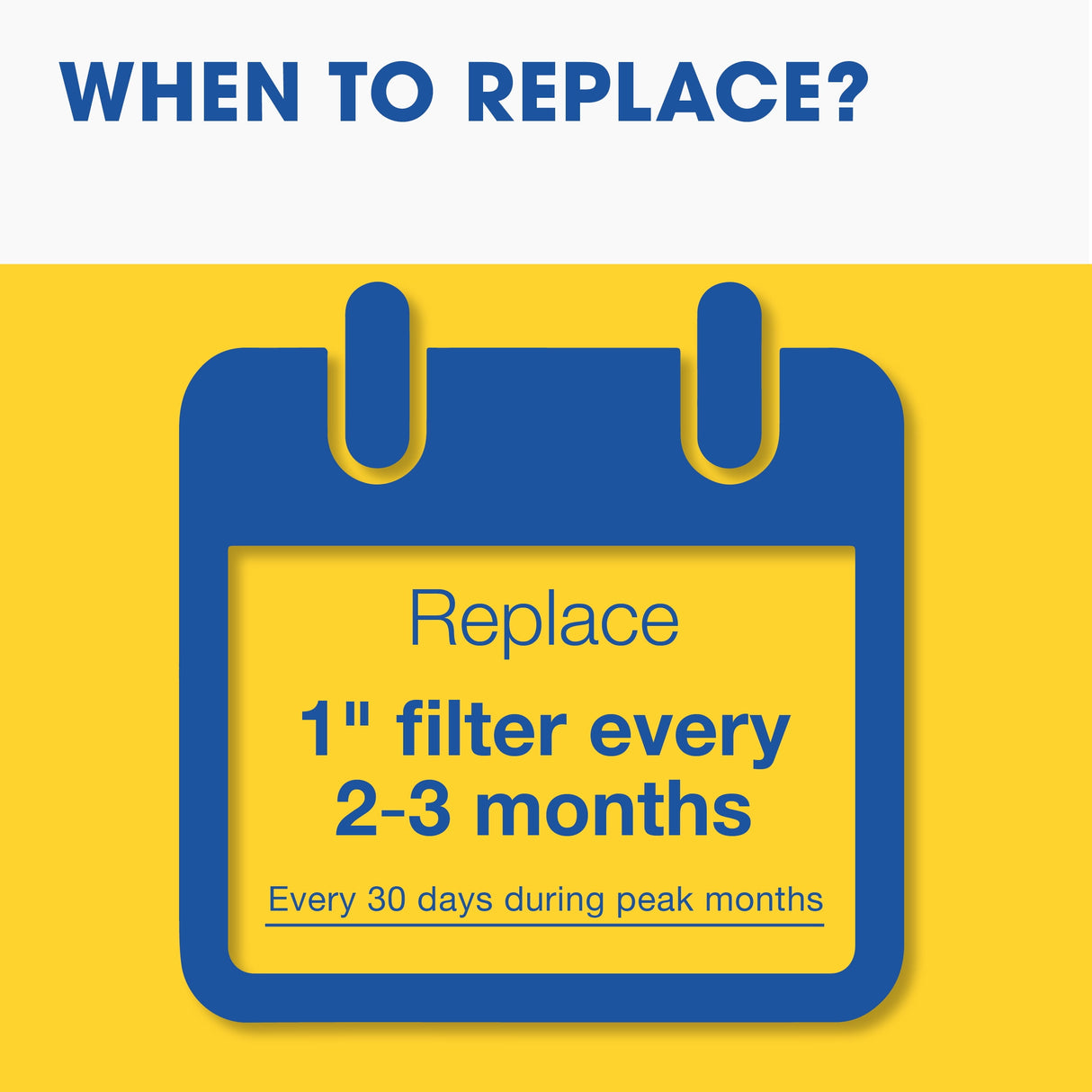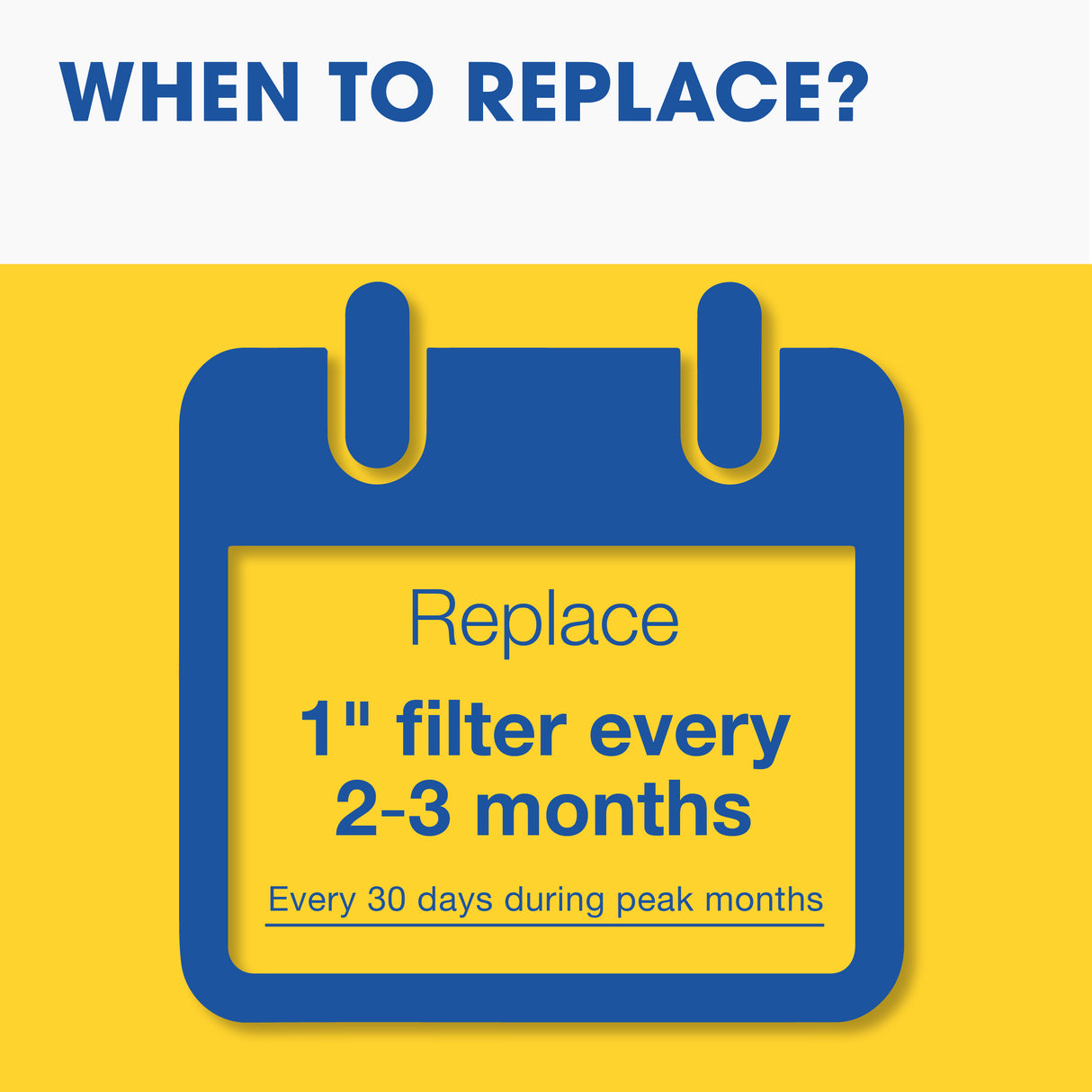16x25x1 Aerostar Air Filter
16x25x1 Aerostar Air Filter - MERV 11 / 6 is backordered and will ship as soon as it is back in stock.
3. Select order frequency
Couldn't load pickup availability
Frequently Asked Questions
What Is A 1-Inch Air Filter, And How Does It Work?
What Is A 1-Inch Air Filter, And How Does It Work?
Designed for standard HVAC systems, a 1-inch air filter functions as a barrier, keeping airborne particles from recirculating in your airspace. It forces air through the HVAC system and traps harmful contaminants in its fibers. Over time, the filter catches debris and needs to be replaced so it won’t clog up, affect airflow, or reduce HVAC system performance.
How Often Should A 1-Inch Furnace Filter Be Replaced?
How Often Should A 1-Inch Furnace Filter Be Replaced?
Replace the air filter in your home about every 90 days if you want your HVAC system to run efficiently and protect it, and you want to breathe healthier air. Evaluate your choice based on whether you have smokers or pets in your space, consider the size of your home or business, and assess the level of air quality you need. If your current airflow seems restricted, you notice dust around your HVAC system, or your utility bill has risen, you should switch out your air filter because these are signs that it needs replacement.
What Are The Different Types Of 1-Inch Filters Available?
What Are The Different Types Of 1-Inch Filters Available?
1 inch air filters have different capabilities. 1 inch furnace filters are designed to be compatible with various HVAC units. A basic disposable fiberglass filter keeps larger debris from circulating, so it offers some limited protection. Dense pleated filters are better at capturing pet dander, dust, and pollen, especially when your home has pets or family members who suffer from allergy symptoms. Pleated filters are often easier to install and replace because they’re more compact. Electrostatic filters trap fine contaminants by using static electricity. Washable 1 inch filters minimize waste because they’re reusable. Carbon filters are best when persistent odors linger.
Do 1-Inch HVAC Filters Affect System Efficiency And Energy Consumption?
Do 1-Inch HVAC Filters Affect System Efficiency And Energy Consumption?
The filter’s thickness affects how well air moves through your HVAC system. A 1 inch HVAC filter may have an impact on efficiency and energy consumption depending on its condition and MERV rating. When your filter is clogged, your HVAC unit will attempt to compensate by using more energy to push air through it. This strains your system and makes system parts wear down. Switching out your filter regularly makes it use less energy, saves you money, and ensures your HVAC unit operates more effectively.
How Do I Choose The Right 1-Inch Filter For My Home?
How Do I Choose The Right 1-Inch Filter For My Home?
Consider the MERV vs. MPR vs. FPR Rating of the 1-inch filter you’re thinking about purchasing and how well it matches your air filtration needs. MERV ratings, which were developed by the American Society of Heating, Refrigerating, and Air-Conditioning Engineers, are the standard system used to evaluate HVAC filter efficiency. MPR ratings emphasize the removal of microparticles, like fine dust and allergens. FPR provides an easy scale that categorizes filters. Understanding these different ratings lets you pick a filter that balances air quality, longevity, and efficiency. With a wide range of 1-inch filters, Air Filters Delivered provides both standard and custom sizes, including multiple MERV rating options for effective air quality management.
Can A 1-Inch Air Filter Help With Allergies And Asthma?
Can A 1-Inch Air Filter Help With Allergies And Asthma?
A 1-inch air filter with a MERV 11 or MERV 13 rating ensures your home or business reduces exposure to allergy triggers. Investing in a higher-rated filter improves air purity and will support better respiratory health by reducing pollen, dust mites, and mold spores.
Are Washable 1-Inch Air Filters A Good Option?
Are Washable 1-Inch Air Filters A Good Option?
Washable, eco-friendly 1 inch air filters might be a more cost-effective choice for homeowners who want to avoid the need to frequently have to change their air filters. While they can be a good alternative to disposable filters, washable filters need to be thoroughly rinsed and dried to prevent them from getting moldy. If someone in your family has allergies, or air quality is your priority, they may not be the best solution for your home’s filtration, because they don’t capture microscopic debris as well as disposable filters do.
What Happens If I Don’t Change My 1-Inch HVAC Filter Regularly?
What Happens If I Don’t Change My 1-Inch HVAC Filter Regularly?
When a 1-inch HVAC filter gets dirty and isn’t replaced, dirt and debris can obstruct your airflow and might damage your HVAC system. It might make your system overheat or have an unexpected mechanical issue. It can also raise the cost of your utilities. Ensuring your filter is clean makes your HVAC unit work more efficiently, reduces your maintenance costs, and creates a healthier indoor environment. These reasons are why it's important to dispose of a dirty air filter and replace it consistently.
Can I Use A Thicker Air Filter Instead Of A 1-Inch Filter?
Can I Use A Thicker Air Filter Instead Of A 1-Inch Filter?
If your HVAC system is designed to work with 1 inch filters, thicker filters might not fit properly, may reduce filtration, and force your HVAC system to work beyond its capacity. Using a thicker filter might make your HVAC unit consume more energy or cause gaps that allow unfiltered air to bypass it. Check your system’s specifications in your HVAC manual to make sure a thicker filter is compatible with it before you purchase it.
What is a MERV Rating?
About MERV, MPR and FPR Rating
The three rating systems were created by different organizations. MERV is the domestic and international Industry Standard rating system established by the American Society of Heating, Refrigerating, and Air Conditioning Engineers. The other two rating systems were created by 3M and The Home Depot, but all are rating the same filter.
MERV Rating (Minimum Efficiency Reporting Value):
As you have already learned, the MERV Rating is the primary rating system used in the industry, both domestically and internationally. Established by the American Society of Heating, Refrigerating, and Air Conditioning Engineers, MERV rates a filter’s ability to capture and hold particles and pollutants.
MERV Breakdown:
- 1-4: Minimal filtration, captures large particles like dust and lint.
- 5-8: Moderate filtration, suitable for most residential applications, effective against mold spores and pet dander.
- 9-12: Improved filtration for allergens, smoke, and fine dust.
- 13-16: High-performance filtration, used in healthcare or cleanroom environments.
MPR (Micro-Particle Performance Rating):
MPR Rating is a rating system developed by 3M. It rates the manufacturer’s Filtrete product line and their ability to capture airborne particles smaller than 1 micron.
FPR (Filter Performance Rating):
FPR Rating is a rating system developed by The Home Depot for brands sold through their stores, including Honeywell. It utilizes a color code and number scale (4 to 10) that closely resembles the MERV rating.
What is a MERV Rating?
About MERV, MPR and FPR Rating
The three rating systems were created by different organizations. MERV is the domestic and international Industry Standard rating system established by the American Society of Heating, Refrigerating, and Air Conditioning Engineers. The other two rating systems were created by 3M and The Home Depot, but all are rating the same filter.
MERV Rating (Minimum Efficiency Reporting Value):
As you have already learned, the MERV Rating is the primary rating system used in the industry, both domestically and internationally. Established by the American Society of Heating, Refrigerating, and Air Conditioning Engineers, MERV rates a filter’s ability to capture and hold particles and pollutants.
MERV Breakdown:
- 1-4: Minimal filtration, captures large particles like dust and lint.
- 5-8: Moderate filtration, suitable for most residential applications, effective against mold spores and pet dander.
- 9-12: Improved filtration for allergens, smoke, and fine dust.
- 13-16: High-performance filtration, used in healthcare or cleanroom environments.
MPR (Micro-Particle Performance Rating):
MPR Rating is a rating system developed by 3M. It rates the manufacturer’s Filtrete product line and their ability to capture airborne particles smaller than 1 micron.
FPR (Filter Performance Rating):
FPR Rating is a rating system developed by The Home Depot for brands sold through their stores, including Honeywell. It utilizes a color code and number scale (4 to 10) that closely resembles the MERV rating.

What are air filters?
Clean air filters can improve the efficiency of your HVAC system and the air you breathe. Air filters are barriers that collect dust, allergens, and other materials that would otherwise enter the air you breathe.
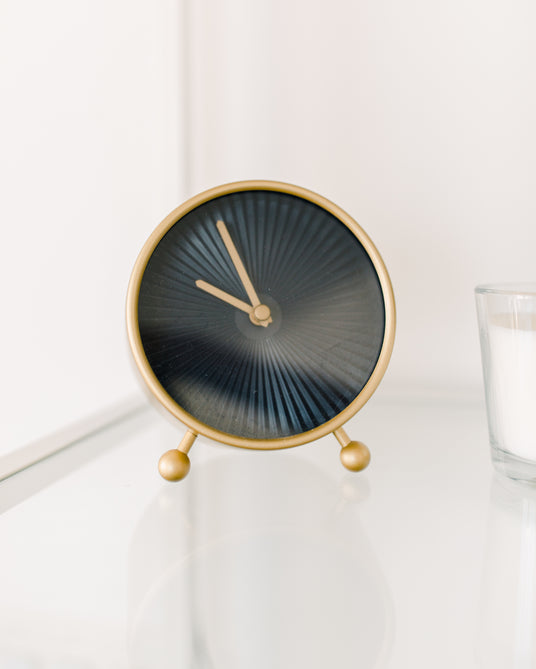
When do I need to change my air filter?
Since there may not be obvious signs that your air filter needs replacement, improve your maintenance routine by setting a reminder. Air filters should be changed every 90 days, give or take. Recommendations can vary based on location, pets, age of equipment, and other factors. Changing an air filter is a simple task that most can do on their own. To determine the size of your air filter, you can remove the existing filter and locate the dimensions. You can also refer to the system’s owner’s manual.
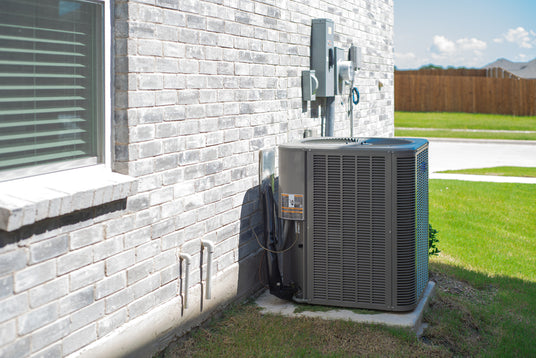
Reasons why you should change your air filter regularly:
- Improve air quality: Dirty air filters can trap air and moisture which can contribute to the growth of mold and bacteria. Eventually, these microbes can spread into the HVAC system, and the air you intake. By ensuring your air filter is changed regularly, you can improve air quality and reduce the risk of mold and bacteria.
- Promote a longer lifespan of your HVAC system: A dirty air filter can cause your HVAC system to work harder. In addition, a dirty air filter can prevent air from moving through. By maintaining a clean air filter, you can promote greater efficiency and a longer lifespan for your HVAC system.
- Save on energy costs: Continuing on the previous benefit, a clean air filter can help your machine operate more efficiently. As a result, you keep your utility bill as low as possible.
- Maintain consistent air temperature: Dirty air filters can interfere with temperature signals. This can cause your HVAC system to start or stop when it’s not supposed to, making it hard to maintain a consistent air temperature.
- Prevent dirty air ducts: Dirty air filters can increase the chance of pollutants building up. The cost and level of effort of changing your air filter compared to cleaning polluted ducts is much more manageable.
When should you change your filter?
-

Asthma or allergies
If someone in your home has asthma or allergies you should change your filter every 6 weeks.
-

Pets
Change your filter every 2 months if you have pets to avoid shedding and odor build up.
-

Young children
Keep your air clean and safe for young children by changing your filter every 2-3 months
High Quality Furnace & HVAC Filters
Cleaner Air, Better Performance, Lasting Value
If allergies flare up at home, or you have pets, stepping up to a MERV 11 or MERV 13 filter can make a real difference.
These higher-efficiency air filters capture finer particles that trigger symptoms including pet dander, pollen, and other common household irritants, so your air feels cleaner and your home more comfortable.
Built with durable, high-quality materials and made in the USA, Aerostar pleated filters are engineered for reliable performance and easy replacement. They’re designed to fit most major furnace and AC systems, helping maintain strong airflow while protecting your equipment from dust and debris.
Why Choose Aerostar Filters from Air Filters Delivered?
- Fast, Free Shipping on every order
- Made in the USA
- Available in MERV 8, MERV 11, and MERV 13 ratings and more
- Compatible with most furnaces & AC brands
- Subscribe & Save with 8% off every auto-delivery
- Wide selection of sizes & thicknesses to fit your system
Want to take one more task off your list? Subscribe & Save and get 8% off every auto-shipped order. Set your delivery frequency to match your change schedule and keep fresh filters coming, no last-minute runs or guesswork.
Ready to find the right fit? Explore our pleated lineup across popular depths to match your system and air quality needs.

